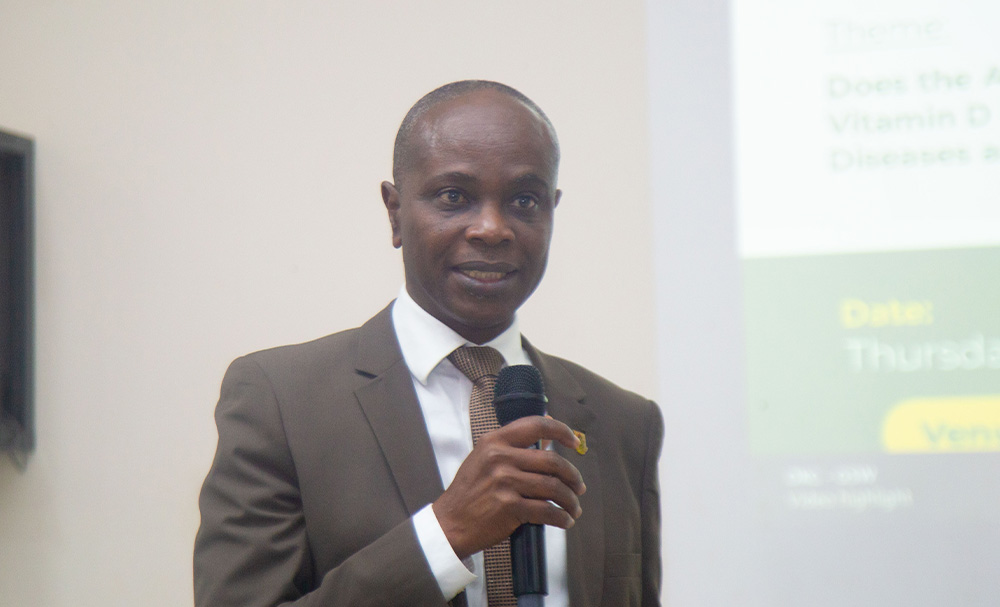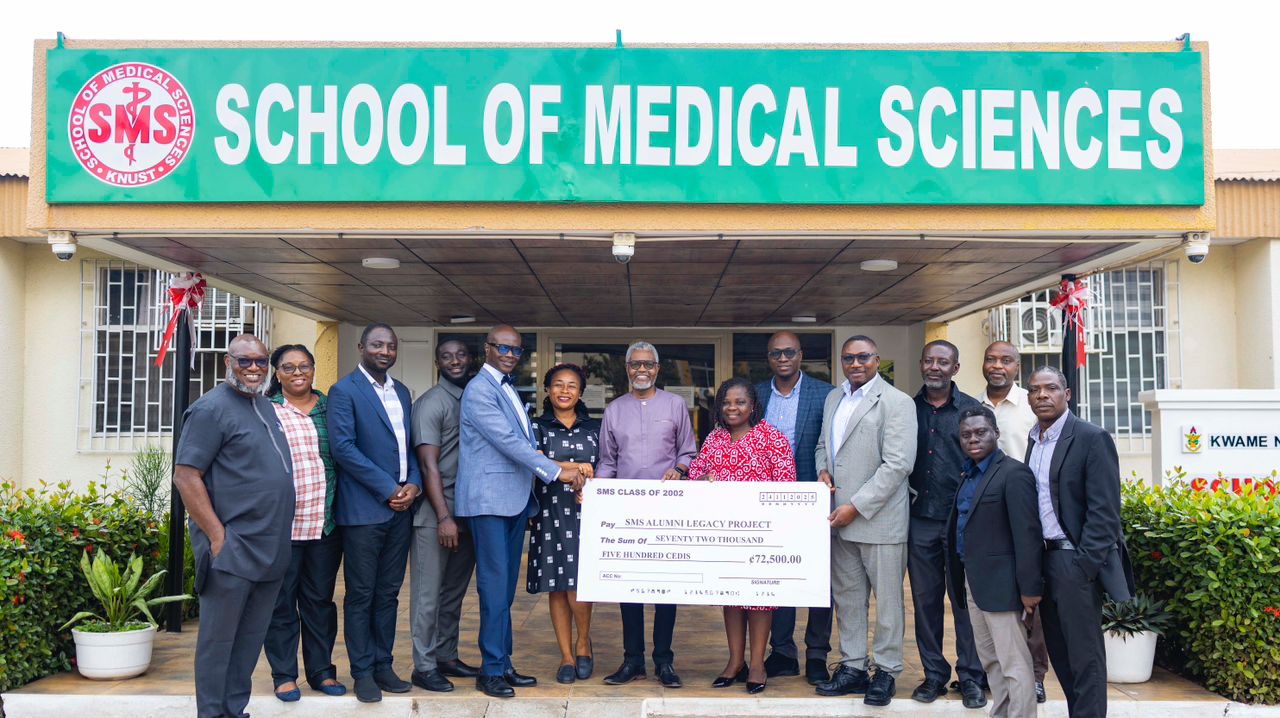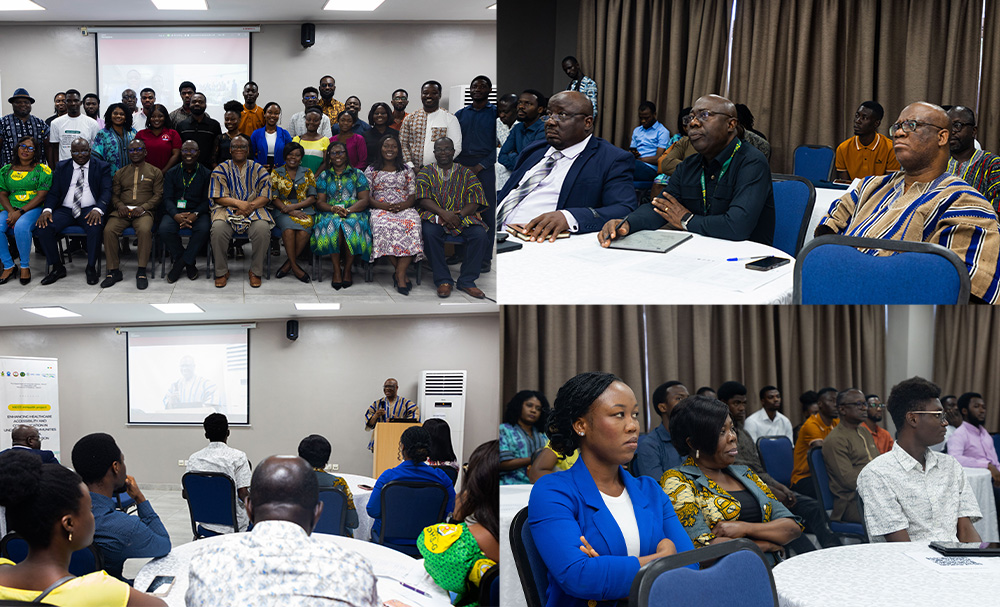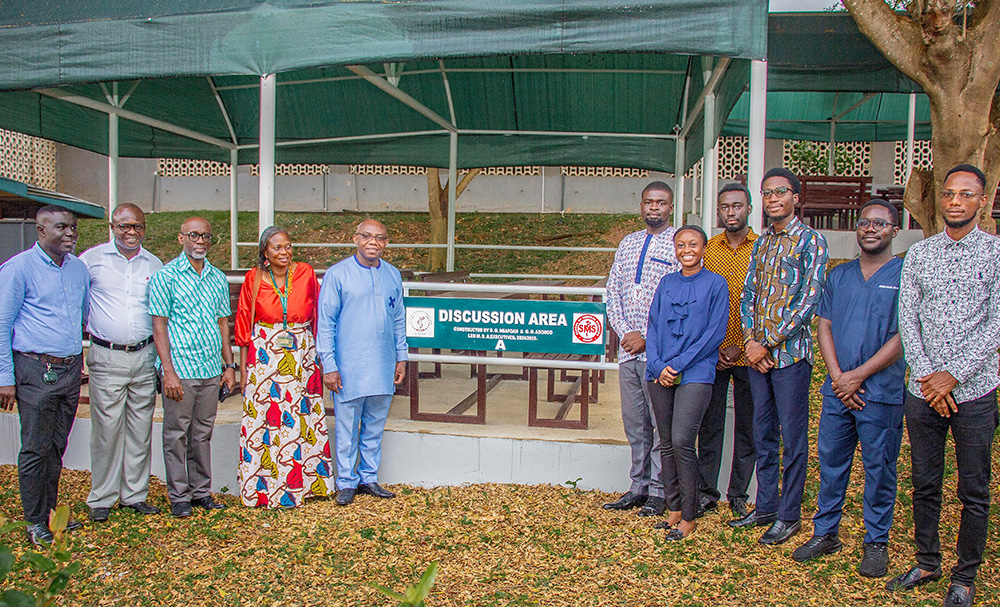A recent study by KNUST School of Medical Sciences (SMS) reveals the high prevalence of Vitamin D deficiency in many regions of Ghana despite the country's abundance of sunshine.
Prof. Sakyi's study, “Vitamin D Deficiency is Common in Ghana despite Abundance of Sunshine” published in the Journal of Nutrition and Metabolism, explores the genetic factors influencing vitamin D metabolism, particularly in some regions in Ghana with consistent sun exposure.
His research aimed to explore the relationship between sunlight, vitamin D synthesis, and the role of vitamin D in disease prevention.
Vitamin D plays a role in calcium homeostasis, immune function, and the prevention of chronic diseases such as diabetes, cardiovascular conditions, and cancer.
The primary source of vitamin D is exposure to sunlight, specifically UVB rays, which stimulate its synthesis in the skin.
However, recent studies, by Prof. Sakyi, show that vitamin D deficiency is widespread in areas with abundant sunlight, raising questions about what factors contribute to this.
Prof. Sakyi, an Associate Professor of Immunology at the School of Medical Sciences (SMS) KNUST, presented an inquiry into the variables affecting vitamin D synthesis, such as geographical location, genetic makeup, lifestyle choices, and environmental conditions.
After multicenter research, including a study conducted in Ghana, he examined the relationship between sunlight exposure, dietary intake, genetic factors, and the implications for disease risk.
“The high prevalence of vitamin D deficiency in tropical regions, where sunlight is abundant, challenges the assumption that more sun means better vitamin D status.
Factors like skin pigmentation, limited sun exposure due to urbanization, and diet play a role in vitamin D levels,” he said. The research also revealed the impact of vitamin D on metabolic disorders, such as insulin resistance and preeclampsia. Prof. Sakyi highlights vitamin D's role in immune regulation and its potential link to cancer prevention.
He revealed the challenges of accurately assessing vitamin D levels and the effectiveness of supplementation strategies.
“Supplementation and food fortification are tools in combating vitamin D deficiency, but they come with challenges, including adherence to supplementation regimens and ensuring equitable distribution,” he explained.
Prof. Sakyi, speaking at the interdisciplinary seminar hosted by the School of Medical Sciences (SMS) concluded with recommendations to address vitamin D deficiency, emphasizing the need for public health strategies tailored to local conditions.
These include better integration of supplementation programs, vitamin D-rich foods in public health initiatives, and further research into the genetic and environmental factors that influence vitamin D levels.
The findings from the seminar are expected to influence public health policies, guiding efforts to improve vitamin D status in populations worldwide.

According to Prof. Akwasi Antwi Kusi, Dean of the KNUST School of Medical Sciences, the annual interdisciplinary seminars will "bring together experts to discuss ongoing research, which is important in fostering collaboration and translating scientific findings into health solutions.
This will be an annual event, and we look forward to further seminars that address critical health issues."








